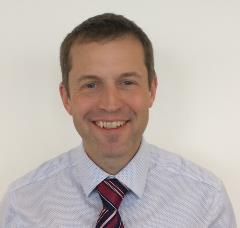 This interview was conducted in 2021.
This interview was conducted in 2021.
Q1: Describe your current position/role.
I’m responsible for developing and managing the stakeholder and system requirements for a major nuclear infrastructure project.
Q2: What are one or two of your proudest professional accomplishments?
I’m a Chartered Engineer and Chartered Project Professional, but my proudest professional accomplishments have been team accomplishments. They’ve come in the moments that the team has reached major project milestones like placing contracts for aircraft carriers and submarines or submitting robust recommendations to government on how to manage nuclear decommissioning in a safe and responsible way.
Q3: What is the biggest challenge you face as a Systems Engineer?
Understanding and applying systems engineering approaches can be challenging but I find the biggest (and most important) challenge is communicating them in ways that project teams and stakeholders can understand and get behind.
Q4: What advice do you have for individuals starting their career as a Systems Engineer?
Remember that systems engineering is a discipline built on interdisciplinary collaboration and learning from the experience of past projects. So always be ready to learn from other disciplines, and from the successes and mistakes of the past.
Q5: How do you continue to learn about SE? What professional development activities do you do?
I have a growing collection of reference books which I dip into regularly. I’ve also found some helpful Massive Open Online Courses (MOOCs) such as those from University of New South Wales. Best of all, however, is the opportunity to share learning and experience with others in my sector, who are also working at applying systems engineering approaches within nuclear and infrastructure projects.
Q6: What are the next career goals you want to achieve?
As part of progressing the project I’m working on, I’d love to play a part in advancing systems engineering methodologies (eg. Model Based Systems Engineering) within the nuclear and infrastructure sectors.
Q7: What are some of your hobbies/interests outside of work?
Outings with family and maintaining community through my local church have become especially important to me in the past year. Getting outdoors regularly is also precious, I enjoy running and canoeing on my local river and I find that some of my most creative thoughts come to me at these times.
Q8: Why did you decide to get the SEP certification?
I was looking for a knowledge framework (the INCOSE Handbook and ISO15288) that would pull together and makes sense of my experience with complex projects. It has also helped me think through and apply good practice to my current project.
Q9: How does the SEP certification impact your professional career?
I’m finding the main benefit of working towards CSEP certification is the reflective learning that comes from holding up my experience against the INCOSE competences, SEBOK and SE Handbook. How have I done things, or seen things done, in the past and how might I do them differently in future?
Q10: What has surprised you in the past five years related to systems engineering?
There is so much complementarity between systems engineering and project management, particularly for projects involving development of complex systems. So, I’m often surprised when I see it relatively undeveloped. In the UK, Association for Project Management and INCOSE UK have jointly formed a Systems Thinking Special Interest Group (SIG) that has done some great work in this area, but there is a need for much wider awareness.
Q11: What job titles have you had other than “Systems Engineer?”
“Project Manager”, “Project Engineer”, “Engineering Manager”